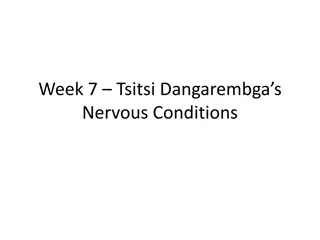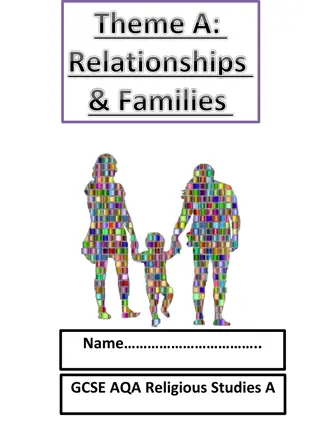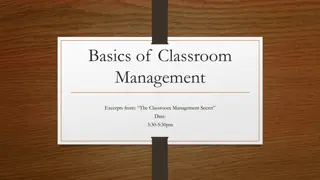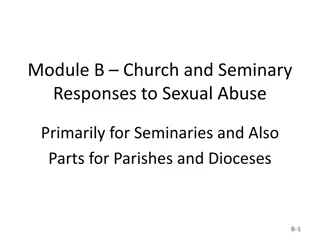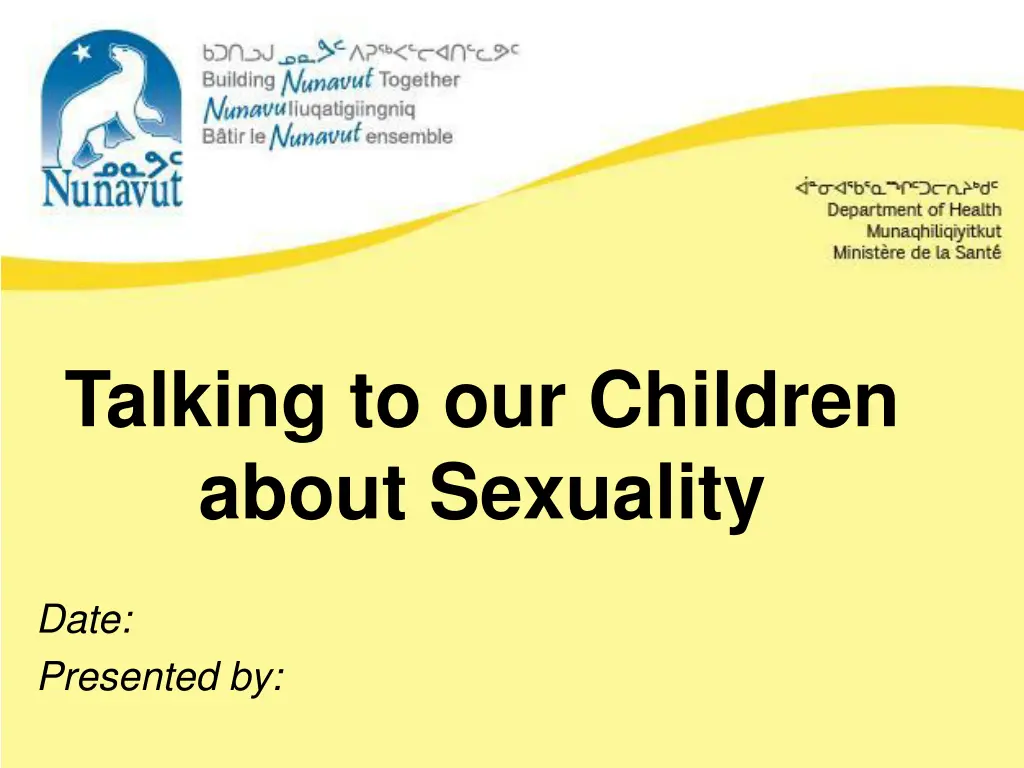
Talking to Children about Sexuality: Essential Tips and Strategies
Discover valuable insights on discussing sexuality with children of all ages, including the importance of starting at a young age, exploring the concepts of sexual health and communication, and setting the foundation for healthy behavior and relationships in adulthood.
Download Presentation

Please find below an Image/Link to download the presentation.
The content on the website is provided AS IS for your information and personal use only. It may not be sold, licensed, or shared on other websites without obtaining consent from the author. If you encounter any issues during the download, it is possible that the publisher has removed the file from their server.
You are allowed to download the files provided on this website for personal or commercial use, subject to the condition that they are used lawfully. All files are the property of their respective owners.
The content on the website is provided AS IS for your information and personal use only. It may not be sold, licensed, or shared on other websites without obtaining consent from the author.
E N D
Presentation Transcript
Talking to our Children about Sexuality Date: Presented by:
Todays Agenda Learn what we mean when we talk about sexuality or sexual health . Learn what we should tell our children about sexuality at a variety of ages. Practice answering common questions that children ask.
Group Agreement All questions are ok, at any time. If someone tells a personal story inside this room, it stays in this room. No judgement we all have our personal values and beliefs. No putting anyone down. Have fun learning! When you see this symbol, we want you to try to answer the question!
Icebreaker Make a face on a post it note how do you feel about talking to the children and youth in your life about sexual health?
Icebreaker Place your post it note on a line (from not important to very important) how important is it to talk about sexual health with the children and youth in your life? Not Important Very Important
What is sexual health/ sexuality? Values what is important to us Communication how we talk to others Relationships Body Image and Self-Esteem how we feel about ourselves Anatomy and Physiology body parts Sexuality Physical Expression (sex) Sexual orientation, gender roles, identity Decision Making
Why do we need to start talking about sexuality when children are young? Because sexuality is about communication, relationships, feelings, and self-esteem. When we talk about communication, relationships, feelings, and self-esteem at a young age, children learn how to behave as adults.
When our children are adults, we want them to
Talking to our children about sexual health can help our children to: Be safe Be happy Be healthy Have good relationships Feel good about their bodies Have children when they re ready Wait until they are ready to have sex
Children and youth need different information at different ages
Ages 0-2 Name body parts penis, vagina, bum, breasts
Ages 2-7 Public and private parts and activities. Who can touch them, when. Be specific! Safe and unsafe touch. Tell them to tell you, that you won t be mad, and it s not their fault. Recognize and name feelings. Answer questions simply.
Ages 7-12 How babies are made Family values and expectations Build self-esteem Puberty (age 8-9) Sexually transmitted infections and birth control (ages 10-12)
Ages 13-18 Start conversations More detail - STIs and birth control Healthy and unhealthy relationships Decision making be specific! Build self-esteem Promote safety Build skills, including communication
Age of Consent for Sexual Activity
Tips for parents Be honest, open, and welcoming Keep your sense of humour Don t worry if the conversation isn t perfect Use TV shows, music, movies, the news, and real life to start a conversation. Share your family values and expectations.
Activity 1: Gallery Walk Common Questions Kids Ask! Each group will come up with age-appropriate answers for the following questions: Question 1 Question 2 Question 3
Activity 2: Teachable Moments Each group is given a teachable moments scenario The group will decide how to respond to the scenario as a parent/ caregiver Each group will act out their scenario and response for the larger group
We can raise our children to be happy, healthy, and safe!
More Information http://www.upworthy.com/5-everyday-ways- to-teach-your-kids-about-consent http://parents.teachingsexualhealth.ca/topics /resources.html www.inuithealthmatters.aboutkidshealth.ca/
Questions? Thank you!





